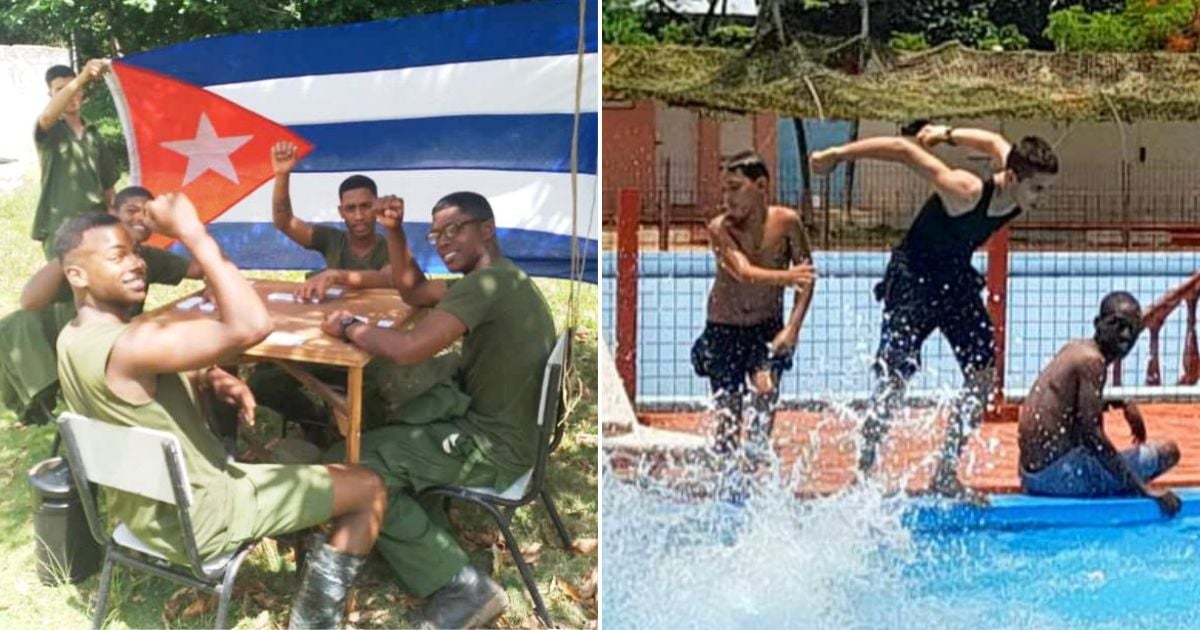As millions of Cubans brace for another summer plagued by power outages, food shortages, and limited recreational options, young enforcers of the Cuban regime are indulging in pool parties, music, contests, and exclusive venues as part of their official "revolutionary summer." A recent Facebook post by the Western Army showcases images of young military personnel engaged in leisure activities including swimming, domino games, casino wheels, and guided tours of ideological centers like the José Martí Memorial and the Fidel Castro Ruz Center.
The post highlights a "vibe of commitment and fun," celebrating the onset of summer with a program full of privileges for the regime's future military leaders, while civilians face extended blackouts and a lack of genuine cultural or recreational offerings. Military propaganda claims these activities "strengthen the revolutionary spirit," yet social media reveals the reality of these privileges enjoyed by those aligned with the government.
A stark contrast emerges when comparing these scenes with recent government statements acknowledging the severe limitations facing the summer of 2025. Despite the regime's attempts to promote "organized and healthy vacations," the country is enduring an energy crisis, inflation, and growing public discontent, leaving few families with any access to leisure activities.
In this scenario, military celebrations not only highlight a parallel reality but also reinforce the perception that the system rewards those who serve as tools of control and repression, while the rest of the nation languishes in heat, frustration, and neglect. With thousands of young people emigrating or barely surviving in hardship, watching future enforcers enjoy state-sponsored privileges is not only offensive but deeply revealing.
Amid an escalating energy crisis and dire economic conditions, the Cuban government launched its 2025 summer campaign under the slogan "Always Young," aiming to keep Cubans—especially children and youth—entertained within their communities. During a recent Round Table broadcast, representatives from the INDER, the Union of Young Communists (UJC), and the Ministry of Culture announced that this summer would feature "modest but aesthetic" activities, centered in neighborhoods and prominently involving youth.
The official narrative appeals to the "rescue of traditions," "family unity," and "knowledge of national history," while skirting around the lack of real recreational access due to inflation, blackouts, and transportation collapse. Raúl Fornés Valenciano, First Vice President of INDER, emphasized that activities should "use leisure time productively and healthily," and stressed that they will not be isolated by organization but rather an integration of sports, culture, education, and workplaces. The focus is on ensuring that families are "beneficiaries" and creatively utilizing "modest resources."
Understanding Cuba's Summer Challenges and Privileges
What are the main challenges Cubans face during the summer?
Cubans face significant challenges such as power outages, food shortages, limited transportation, and a lack of recreational options during the summer.
How is the Cuban government addressing these issues?
The government has launched a campaign under the slogan "Always Young," focusing on modest community-based activities, although it struggles to provide genuine solutions due to the ongoing crisis.
What privileges do future Cuban enforcers enjoy?
Future enforcers enjoy exclusive recreational activities, including pool parties, games, and guided tours, which are not accessible to the general Cuban population.
How does the government’s response affect the general sentiment among Cubans?
The disparity between the privileges of regime supporters and the hardships faced by ordinary Cubans fuels public discontent and highlights systemic inequalities.
